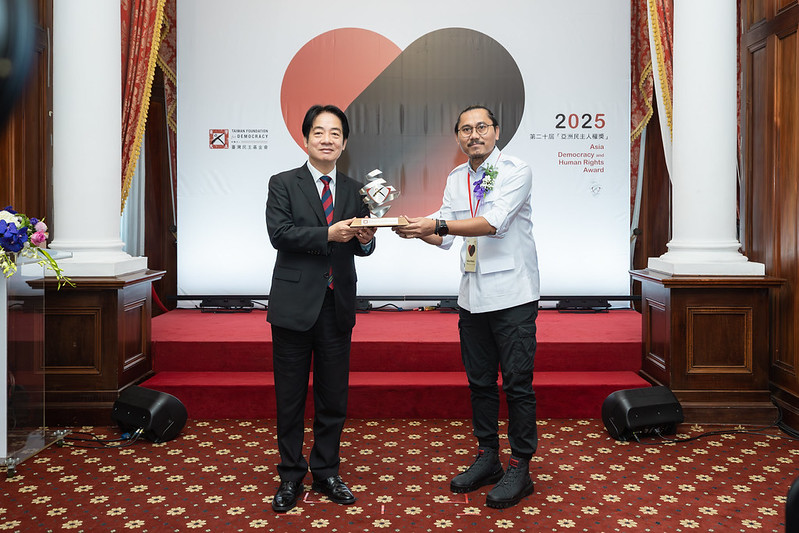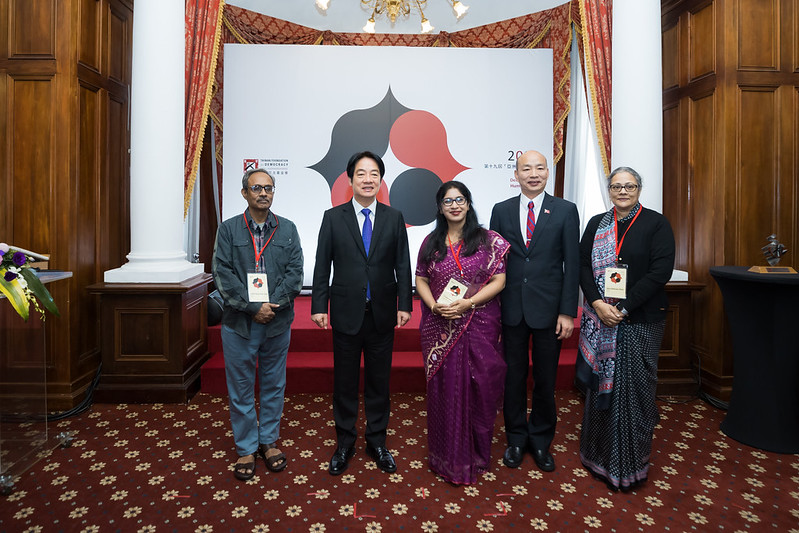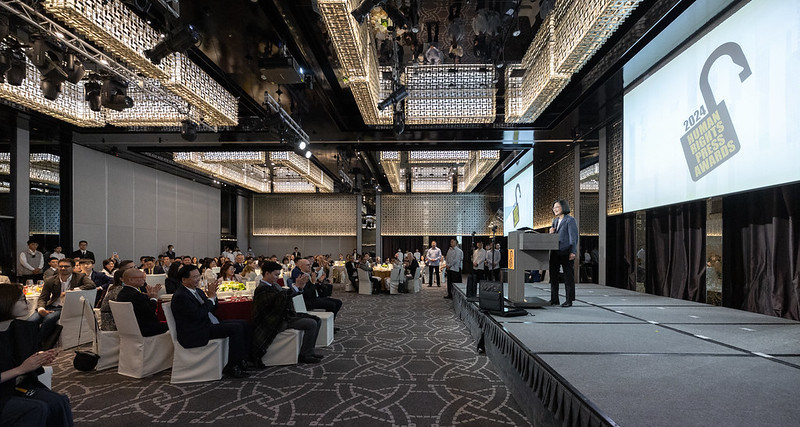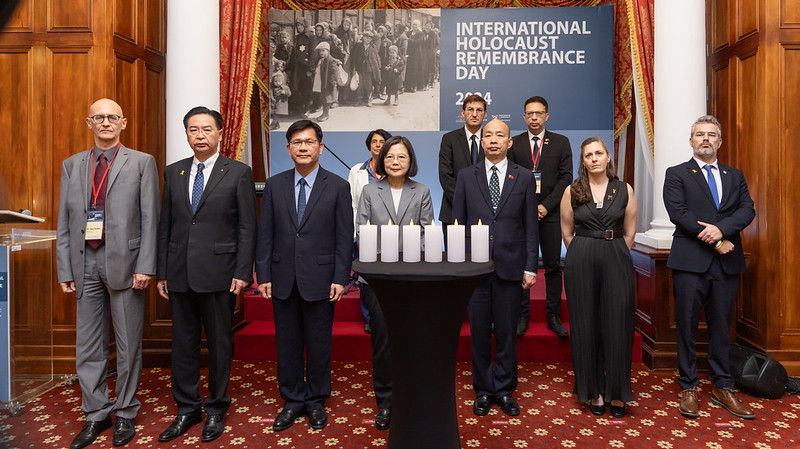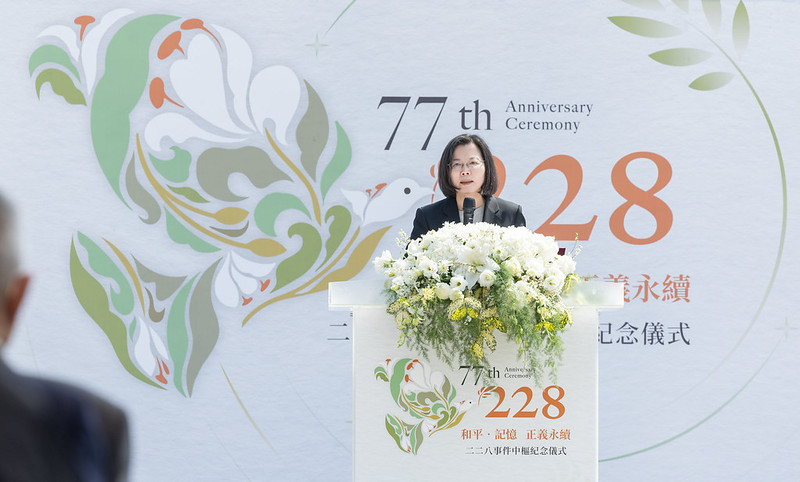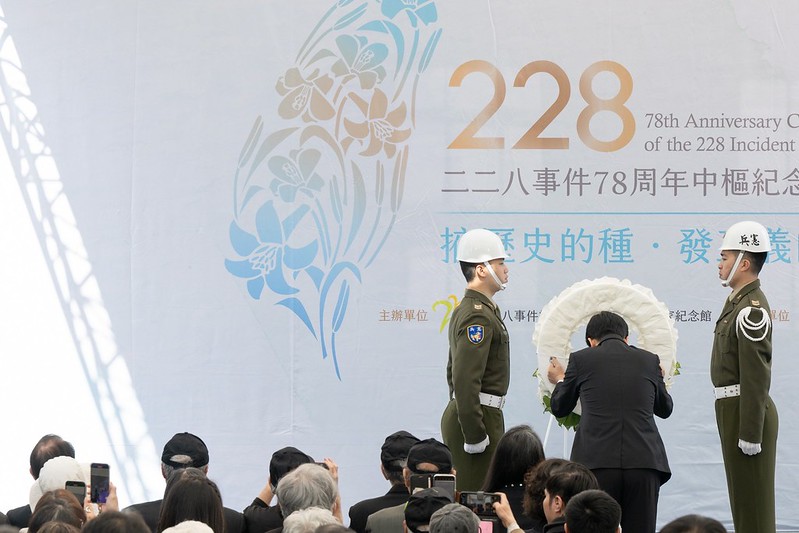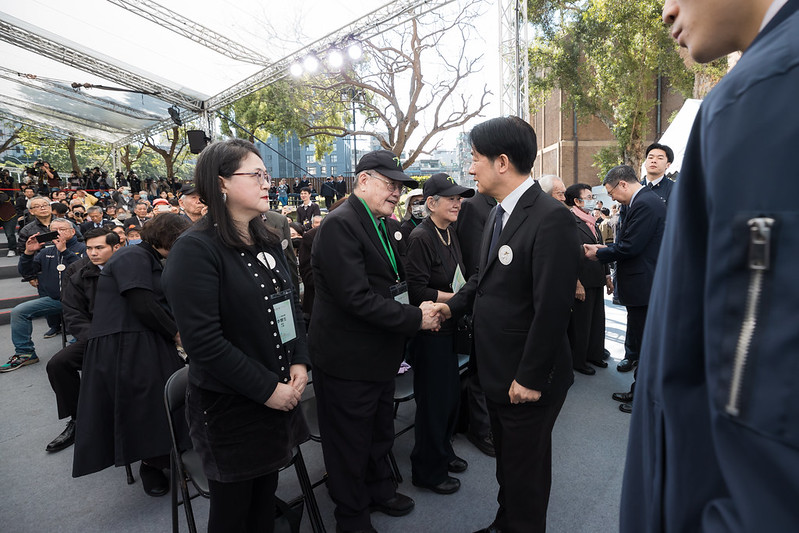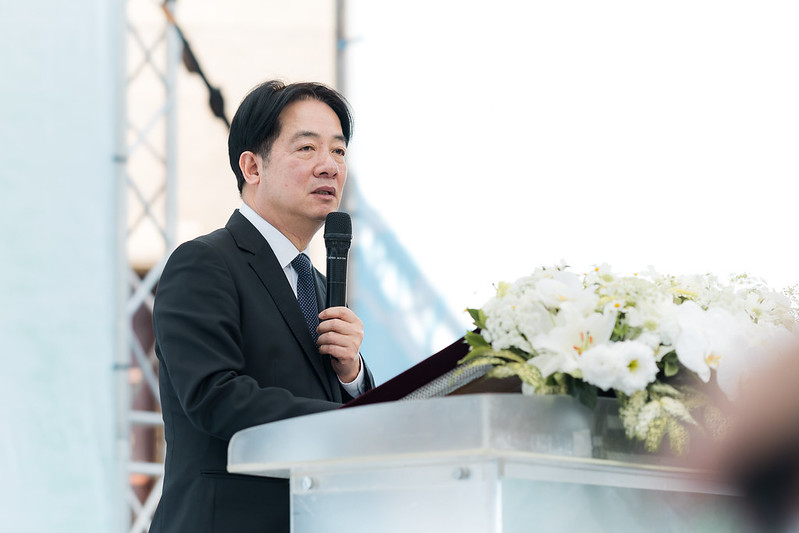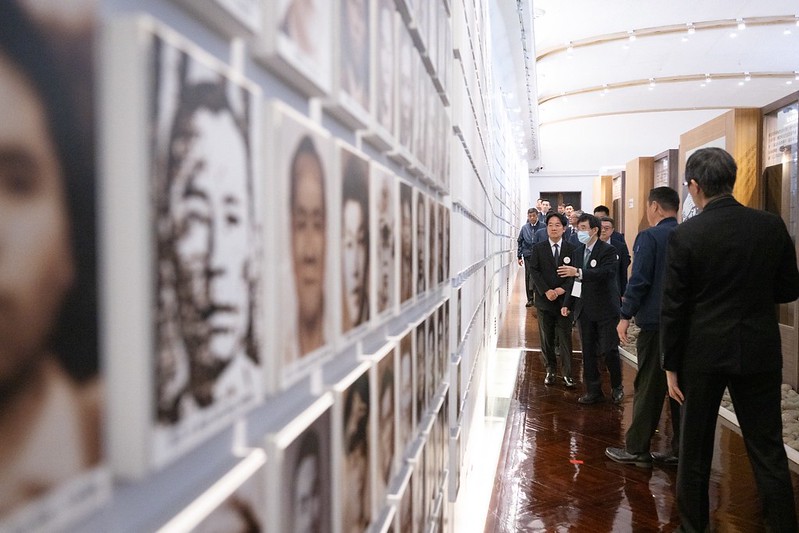News & activities
 News releases
News releases
On the morning of February 28, President Lai Ching-te attended the nation’s main memorial ceremony marking the 78th anniversary of the 228 Incident. President Lai again offered an apology on behalf of the nation and stated that the government will accelerate its work to make political archives available for public access and to clarify the facts of history; proceed further with implementing transitional justice and strive for social reconciliation; and prevent a recurrence of any historical tragedy similar to the 228 Incident.
President Lai emphasized that only a nation ruled by the people is capable of preventing the state apparatus from repeatedly causing harm to the people. The president stated that he will bring Taiwan together for greater solidarity, regardless of ethnicity and irrespective of when we arrived, and that so long as we identify with Taiwan, Taiwan belongs to us all. He expressed hope that everyone can work together. He also expressed hope that our determination to defend national sovereignty and safeguard the free and democratic constitutional system will remain unchanged; and that our resolve to ensure that the people can live and work in peace and happiness, resist aggression and annexation, and prevent a recurrence of such historical tragedies as the 228 Incident will remain unchanged.
A translation of the president’s remarks follows:
Today is the first time for me to attend the nation’s main memorial ceremony marking the anniversary of the 228 Incident in my capacity as president, so I want to start by again offering an apology on behalf of the nation. I want to convey my respect to all of the oppressed persons who courageously faced the authoritarianism of that earlier time, and express my grief for the victims who lost their lives. To those who escaped death and are still with us, I offer my sympathy. And to all the family members I extend my condolences. My heart is always with you.
It has been 78 years since the 228 Incident. The survivors are seeing their numbers dwindle due to the ravages of time. The highly respected Mr. Lin Tsai-shou (林才壽), who was the founding chairperson of the Changhua County 228 Incident Care Association and who spent his remaining years fighting for transitional justice, recently passed away. Each time a victim of the 228 Incident passes away, it is very hard for us to say goodbye.
Being here today, I hope that as each victim leaves us, they leave behind the struggles of this world and find peace in a better place.
The 228 Incident was not sparked by ethnic conflict, and in holding this memorial, we are not stirring up ethnic conflict. Those who describe the entire 228 Incident as a matter of ethnic conflict demonstrate no ability for self-criticism, an utter lack of remorse, and no awareness of their own responsibility. That is not right.
The 228 Incident occurred because Taiwanese society at that time was already beginning to enjoy the benefits of modern civilization. Whether at night or during the day, people did not have to close their doors. The main mode of transportation at that time, bicycles, did not need to be locked. People raised chickens and ducks in cages right outside their homes and never worried about them getting stolen. That is what Taiwanese society was like back then.
But the troops that came over from the mainland had been through many years of war, including the Northern Expedition, the war of resistance against Japan, and the civil war against the Communist Party. It is impossible that their living standards could have been comparable to what we had in Taiwan. The theft, robbery, and destruction that they engaged in, and the general disparity in their level of civilization, generated widespread outrage as well as backlash. Troops under Chen Yi (陳儀) were poorly disciplined. And as the dictator Chiang Kai-shek was being steadily forced to retreat from the mainland, he committed heinous crimes to ensure that he would be able to establish rule in Taiwan. Countless numbers of innocent people were arrested, imprisoned, beaten, or killed. Families were torn apart, and many people fled overseas. Taiwan lost a generation of its elite, which had an immeasurable impact on Taiwanese society.
The 228 Incident was long a taboo subject in Taiwanese society. For decades the Taiwanese people dared not speak of it because, living in an oppressive political climate, no one had the courage to speak their mind. It was only after the Taiwanese fought together in solidarity and achieved democracy that the government began to offer apologies, provide compensation, restore people’s reputations, set up monuments, and established a holiday for remembrance. The government eventually established a 228 Memorial Foundation, and now holds an annual ceremony to mark the anniversary of the incident.
We wish to recognize everyone who has participated in and contributed to transitional justice for the 228 Incident. Considerable progress has been achieved on this front, but as 228 Memorial Foundation Chairman Hsueh Hua-yuan (薛化元) has noted, some in Taiwan wonder why we always speak of the victims but not the perpetrators. Some also ask why we are not exactly sure what happened to some of the victims. With such uncertainties, they say, the process of transitional justice offers little comfort to the victims or their families, and there is no true social reconciliation.
Looking to the future, I myself, Premier Cho Jung-tai (卓榮泰), and the relevant Executive Yuan agencies should coordinate with the 228 Memorial Foundation. Over the past few years, people in all walks of life have continued advancing the cause of transitional justice. Especially as it applies to information regarding the perpetrators, we need to enable our society to fully know the facts. On this basis, let us strive together for social reconciliation so that we can all work together in solidarity.
However, we also know that tracking down the facts of history is not easy. For instance, the murders at the Lin I-hsiung (林義雄) residence, which happened on February 28, 1980, remain unsolved to this day. But investigations and research reports that have come out in recent years have not been able to rule out the possibility of the state’s involvement. However, it has at least been proven that Taiwan’s intelligence apparatus obstructed investigations into the case and even destroyed key evidence. The government cannot claim it bears absolutely no responsibility for the murders at the Lin I-hsiung (林義雄) residence. So today, on behalf of the government, I apologize to the Lin family.
Moving forward, I will continue leading the government in addressing the 228 Incident on several fronts.
First, we will accelerate our work to make political archives available for public access and to clarify the facts of history:
Last year I instructed the National Security Bureau to manually inspect roughly one million records at the bureau pertaining to the period of martial law, and to conduct an inventory to determine which of those records qualify as political archives. This inventory process is scheduled for completion by May. The results of the inventory will be reported by June to the National Archives Administration, National Development Council for approval. The political archives will then be made available for public access, and anyone will be able to use them to ascertain the facts of history.
Second, the government will proceed further with implementing transitional justice:
With regard to the physical locations where human rights abuses took place during the period of authoritarian rule, the Ministry of Culture has launched deliberation procedures to discuss the preservation of “locations of significance to transitional justice.” This includes the site where members of the Lin I-hsiung (林義雄) family were murdered – the present Gikong Presbyterian Church, which is a historical site of authoritarian-era human rights violations.
I will ask our Ministry of Culture to launch a deliberation procedure to discuss the classification of Gikong Presbyterian Church as a “location of significance to transitional justice” and the provision of a commensurate level of preservation and maintenance. I hope that future generations in Taiwan will be able to visit historic sites and reflect upon how authoritarian rule undermines human rights and freedom. I also hope that, by working together, we can more deeply entrench our democracy.
And third, we intend to prevent a recurrence of any historical tragedy similar to the 228 Incident:
Each year’s ceremony to mark the anniversary of the 228 Incident is not simply about memorializing the victims, consoling their family members, and healing old wounds. These ceremonies are intended to take history as a lesson so as to ensure that history will not be repeated.
We are all well aware that we have a nation insofar as we have sovereignty; we have a democracy insofar as we have a nation; we have rule by the people insofar as we have democracy; and only a nation ruled by the people is capable of preventing the state apparatus from repeatedly causing harm to the people.
We are also well aware that China has not renounced the possibility of using military force to annex Taiwan. The greatest threat to Taiwan’s sovereignty, to Taiwan’s democracy, and to rule by the people of Taiwan, comes from China. In recent years, China has not renounced the possibility of using military force to annex Taiwan; it has stepped up its political and military intimidation. It has taken advantage of Taiwan’s democracy, freedom, diversity, and openness to influence citizens, organized crime rings, on-air political commentators, political parties, and even current and retired members of the armed forces and police, seeking to draw them into its united front for infiltration and division and thus undermine Taiwan. A report from the National Security Bureau indicates that 64 persons were charged last year with suspicion of spying for China, which was four times the number of persons charged for the same offense in 2021.
It is thus clear that Taiwan faces a very serious challenge. It is my mission as president to bring Taiwan together for greater solidarity, and this must be done regardless of ethnicity and irrespective of when we arrived. So long as we identify with Taiwan, Taiwan belongs to us all. I will bring Taiwan together. I hope that our determination to defend our national sovereignty and safeguard our free and democratic constitutional system will remain unchanged. And our resolve to ensure that the people can live and work in peace and happiness, resist aggression and annexation, and prevent a recurrence of such historical tragedies as the 228 Incident remains unchanged. Let us all work together toward that end.
